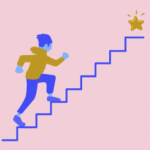South Africa is a country of many cultures, languages, and nationalities. South Africans speak more than 11 different native languages. South African languages vary in their accents, dialects, and sounds. It’s not unusual to come across someone who speaks a dozen languages in one day—and many people in the country can also speak a second language from birth. In this article, we will explore the 11 most common languages in South Africa.
Here are 10 common languages in South Africa.
Table of Contents
10 Common Languages in South Africa
Zulu
Zulu is the topmost widely spoken native language in South Africa. The language is used by approximately 25% of the population. It is primarily a language of the Zulu people who speak the Bantu language family. There are also significant numbers of people of other ethnic groups who speak it as a first language, particularly in rural areas.
Although it was not an official language at any point in history, it was once one of the most common languages in South Africa. In South Africa, the language is known as isiZulu. The language is closely related to Xhosa, Ndebele, Venda, Shangaan, and Swati. The language is divided into different dialects with each having its own unique set of accents.
In the Zulu language, Zulu means “the people.” Zulu South Africa was established in 1834 and is the second most spoken language in South Africa. The word ‘Zulu’ is used in the names of many groups, such as the Zulu Nation, the Zulu Congress, the Zulu royal dynasty, the Zulu King’s Council, and the Zulu kingdom.
Xhosa
South Africa’s Xhosa language comes from an African Bantu group. It’s the second most spoken language in South Africa. Xhosa language words are generally derived from the Khoisan (Bushman) language, which has existed for about 20,000 years. Xhosa words come from two different sources: Khoisan vocabulary (about 40,000 words) and a few hundred words borrowed from the Germanic languages (English and Afrikaans). These borrowings can be found in the areas of law, administration, and commerce.
It Is one of the oldest languages in the world and was originally spoken in the south of Africa. This language is very closely related to the Zulu language and the two are often confused. I also want to say that the Xhosa language in South Africa is known for its beautiful words which are very unique and different from other languages in the world. These words make the Xhosa language in South Africa very interesting for the native speakers of this language.
Tswana
As of 2011, the Tswana language was spoken by about 4.2 million people, making it the third most widely spoken language in South Africa. The language is a Bantu language, which means that it belongs to the same family as Zulu, Xhosa, and Sesotho, and is closely related to many other languages such as Ndebele, Northern Sotho, Venda, Sesuto, Sepedi, and Setswana.
Although its speakers are mainly native South Africans of Tswana origin, the language is widely spoken in neighboring Botswana and Namibia, and the Tswana are also a significant minority in Zimbabwe and Zambia. It has become the national language of Lesotho.
Tsonga
Tsonga is one of the languages spoken by people who live in the Eastern Cape province. Tsonga is a Bantu language, meaning that it is related to Sotho, Tshivenda, and Shangaan. Tsonga is a click-language and is a very important language in the Eastern Cape.
The Tsonga language is spoken in southern Africa, including Botswana, Lesotho, and Zimbabwe. The language has been divided into three dialects: North-Central, South-Central, and Eastern. The latter two are grouped by linguists, but in reality, there is a great deal of variation between them.
Swazi
It’s a Swazi word meaning “to come.” Swazi, an African language, is spoken in South Africa. Swaziland and Botswana are other countries where Swazi is spoken. Swazi is a Bantu language, which is a family of languages spoken throughout much of southern Africa, especially in Zimbabwe, Zambia, Malawi, Mozambique, Tanzania, and Kenya.
Southern Ndebele
Ndebele is one of the most common languages in South Africa. In 2015, there were about 1.1 million people who speak the language in South Africa. Today, it’s a dying language, with less than 20% of the population able to speak it fluently.
Sotho
The Sotho language is only spoken by about 5.6 million people. It has its alphabet and is classified as an indigenous African language. It’s spoken mainly in Southern Africa (Botswana, Lesotho, Namibia, South Africa, and Swaziland) and a few places in southern Mozambique and northern Zimbabwe. It has an official language status in Botswana, Lesotho, and Namibia.
The Sotho language has the same number of consonants as English. It shares some words with other Bantu languages, including Swahili and Zulu, and it also borrows a few from English.
Pedi
Pedi is a language spoken in the Kalahari region of South Africa. The dialect is very similar to Xhosa, which is spoken in the rest of South Africa. Pedi is known for its very poetic nature.
Pedi is the language used in South Africa by the Pedi people, a Bantu ethnic group. They live mainly in northern KwaZulu-Natal and southern Mpumalanga provinces and some parts of Free State province. The Pedi language is closely related to Zulu, but it has many distinctive features.
English
South African English is an official language in the country and the Afrikaans dialect has been widely used since the early days of European colonization. However, South African English is spoken in many other towns and cities, especially the major cities, where it has become the de-facto standard. As such, South African English has borrowed heavily from British English, particularly the vocabulary.
Afrikaans
Afrikaans is a South African language with its written language and several dialects. In terms of vocabulary, it’s mostly derived from Dutch and English. Afrikaans is a relatively new language- it didn’t develop until the late 1800s. In the 1880s, Afrikaans was adopted by the white population to make it more difficult for the native indigenous black Africans to communicate with one another. The Afrikaans language was made official in 1920 when it was accepted as a language to be taught in schools. Today, Afrikaans is spoken by millions of people worldwide.
Final thoughts
Languages in South Africa are not always spoken by the majority of the population. However, many of these languages are still used widely within the country and are an integral part of South African culture.
The common languages in South Africa include Afrikaans, English, isiNdebele, isiXhosa, isiZulu, Sotho, Sepedi, Northern Sotho, Southern Sotho, Tshivenda, Xitsonga, and Zulu.

